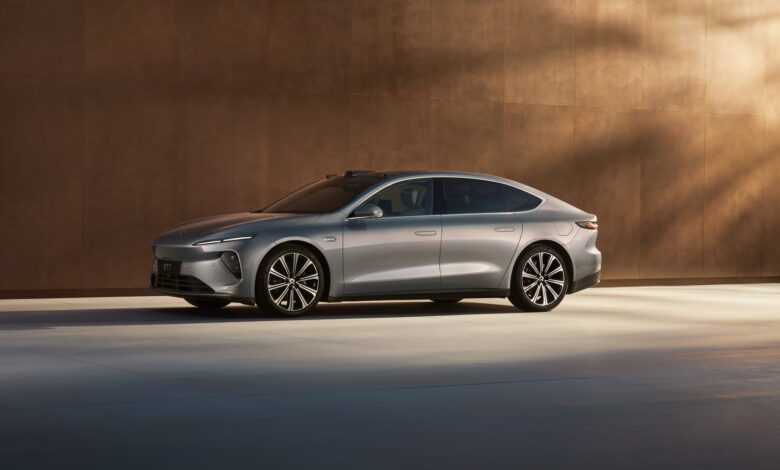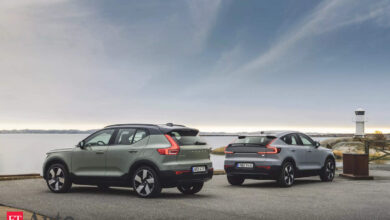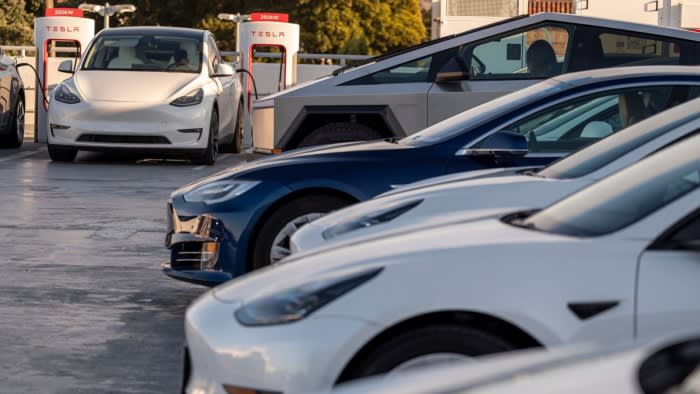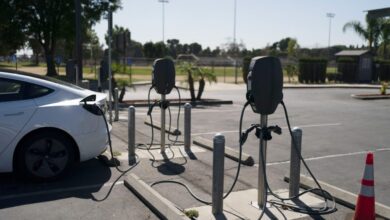Huawei, Li Auto EV sales drop in April as rivals see demand soar · TechNode

Sales of Chinese electric vehicle makers Li Auto and Huawei-backed Aito dropped sharply in April as rivals Zeekr and NIO managed to post major improvements, in the latest indication of how competition in the country could be impacted by price cuts and new model launches.
Why it matters: The latest sales figures in April showed the world’s largest EV market is slowly recovering from a sales slump due to an economic downturn and inclement weather early this year. Some potential EV buyers are still waiting on the sidelines for possible stimulus measures and for new cars shown at this year’s Beijing Auto Show to make it to market, experts say.
READ MORE: Global carmakers take on Chinese giants in EV showdown at Beijing Auto Show 2024
Details: GAC’s Aion, Li Auto, and Huawei-backed Aito – which are among the biggest Chinese EV makers – all reported double-digit declines in EV deliveries in April from a month earlier. Huawei saw sales of Aito-branded EVs fall 21% last month, with monthly deliveries of the redesigned M7 falling to 10,896 units from its peak of nearly 30,000 units. Aion and Li Auto delivered 28,113 and 25,787 EVs in April, 13.6% and 11% fewer than a month earlier, respectively.
- All three EV makers have launched new cars and ushered in steep price cuts for their existing models in order to maintain demand throughout 2024. Huawei said on Monday it had secured 11,000 reservations with non-refundable deposits for the Aito and Luxeed lineups over the recent five-day Labor Day holiday, while there were more than 41,000 pre-orders for Li Auto’s L6 range-extended hybrids between April 18 and May 5. GAC is currently putting the redesigned versions of its Aion V and Hyper HT battery crossovers on display in its showrooms nationwide.
- In the meantime, Zeekr achieved record deliveries of 16,089 vehicles in April, up 24% month-on-month and 99% from a year earlier, mostly driven by a strong performance for its revamped 001 shooting brakes. NIO also saw sales hitting 15,620 vehicles, up from 11,866 a month earlier, as the company’s multiple sales pushes started to pay off. The EV startup has been offering a RMB 10,000 ($1,386) price reduction for those who trade in their old, gas-powered vehicles for a NIO car since the beginning of April.
- While bringing attention to its rivals such as Zeekr and NIO for their similar offerings, Xiaomi posted impressive April sales to officially start its career as an electric car maker. The smartphone giant handed over 7,058 SU7 battery sedans to customers in its first delivery month and secured nearly 89,000 reservations with non-refundable deposits as of April 30. Chief executive Lei Jun expects the company to achieve an annual delivery target of 100,000 cars this year, with its production ramp-up already underway at its Beijing factory.
- Xpeng Motors saw a slight recovery in April sales, delivering nearly 2,000 units of its first multi-purpose vehicle and bringing the total deliveries of the RMB 359,800 van to almost 10,000 units in the four months since its launch. The Volkswagen-backed EV maker has been under pressure from larger rivals, and declined to give detailed figures for the rest of its models. Sales of its G9, G6, and P7 models dipped to less than 1,700 units in March, figures compiled by Chinese auto service platform Dongchedi showed.
Context: China’s new energy vehicle sales in April are expected to be on par with March at roughly 720,000 units, partly because wait-and-see sentiment has grown among Chinese customers, the China Passenger Car Association said in an April 25 post.
READ MORE: Explainer: How a new round of price cuts are reshaping China’s EV market
Related



